Smart Fortwo?
As TTAC's Best and Brightest know, Smart's proud parents, the German geniuses who adopted, abused and then disowned Chrysler, long resisted the calls to bring the Smart stateside. And then, eventually, did. In the first six months, 11,400 Smart fortwo have found new closets homes. If you're an aspiring American smarty pants, you'll have to wait a year; some 30k prospective buyers are holding their [70] horses. And while used full-sized SUVs are worth less than a plate of cocoa and lefse, you can sell your Smart fortwo with a nice profit. Elizabeth Szewczyk tells the Washington Post she gave up her Jeep Wrangler for a Smart car and never (couldn't?) look back. Szewczky (pronounced “Schwwwing”) remembers “watching the fuel gauge drop as she drove down the highway and realizing it was time to trade in her childhood dream." [ED: Safe driving or what?] And anyway the Smart gets her a lot more attention than the Wrangler did. Is that point? We report, you deride.
Brand strategist and conceptualizer. Working with communicating premium brands for manufacturers around the world.
More by Stein X Leikanger



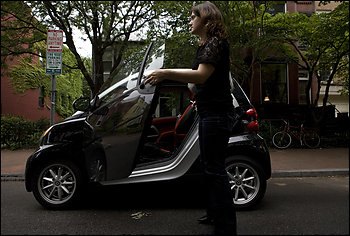















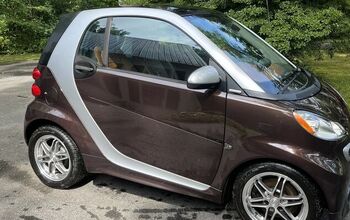
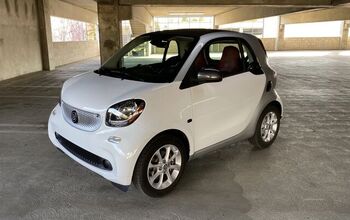
![2016 Smart Fortwo Review - Honey, I Shrunk The Car [Video]](https://cdn-fastly.thetruthaboutcars.com/media/2022/07/19/9237273/2016-smart-fortwo-review-honey-i-shrunk-the-car-video.jpg?size=350x220)
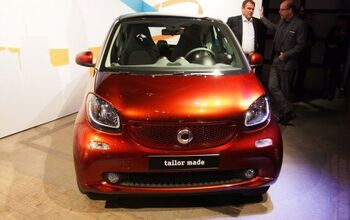
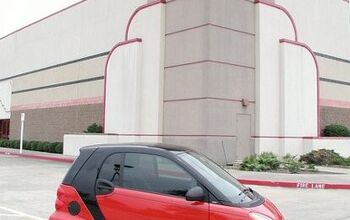










Comments
Join the conversation
Not sure where you are getting all this from. Fortwo sales in Canada followed gas prices closely, and had their greatest sales month in May 2007, after the car had been for sale here for 2 1/2 years. Sales to date of the new model (Jan to June 2008) are 20% higher than that of the previous diesel version (Jan to June 2007). They are selling close to Mini levels (2351 Mini vs 1964 Fortwo so far in 2008) and this year greatly outsell the PT. Note that the initial sales projections by Mercedes for Canada were 800 per year.